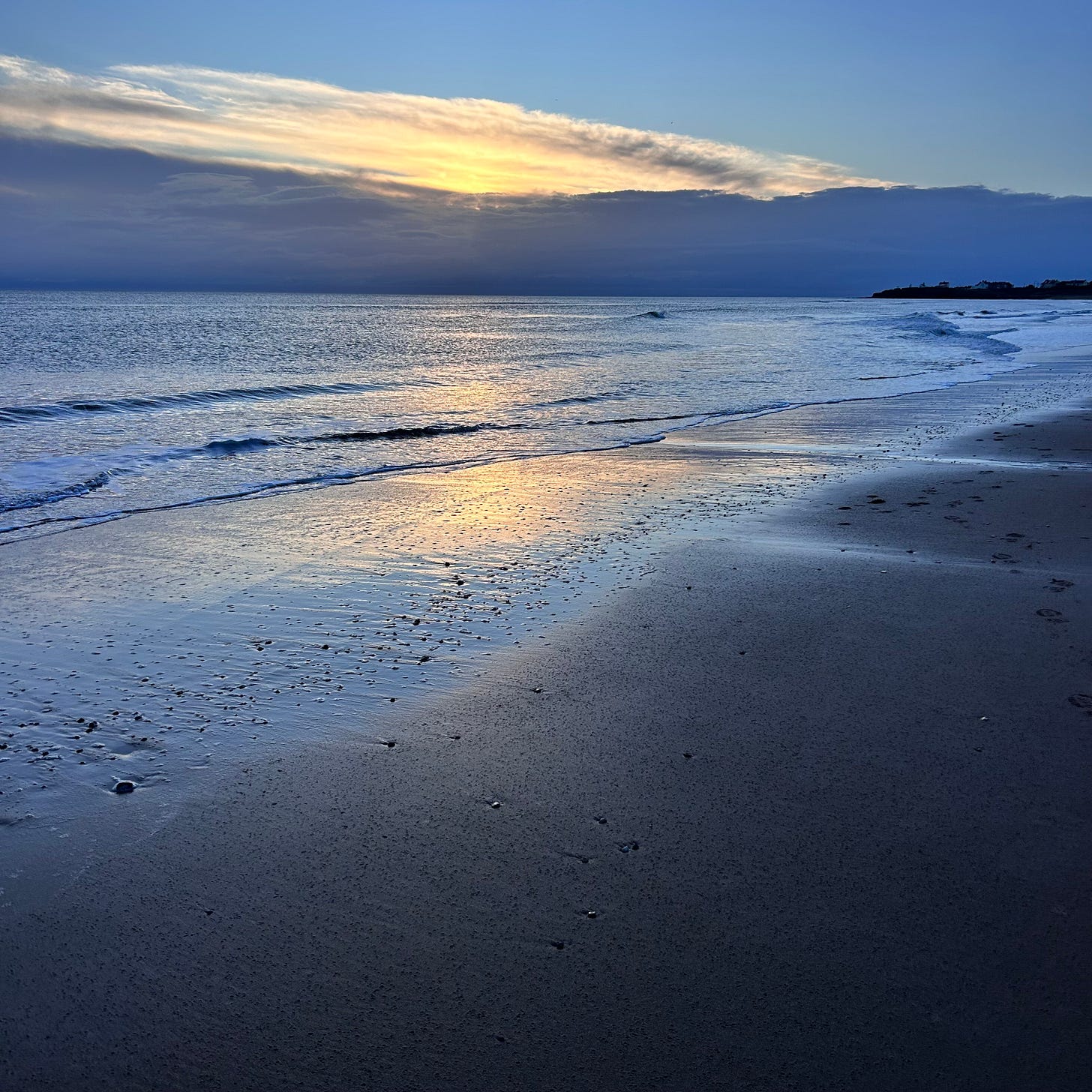Leaving again
A story of homecoming
Just over two years ago, we left a house in Wales that had always felt temporary (though we stayed in it for three years) to return to the north of England, inexplicably close to the Co. Durham coast where I was born and grew up and a place to which, in my wildest dreams, I never imagined I’d ever return. The home in Wales had been something of a crash-landing site, as we found ourselves racing against time to relocate back to Britain from Ireland in the face of the looming COVID pandemic. I had no idea now whether coming back to the North made any sense at all; I just knew that I had to do it. It had been calling me for a very long time and although I couldn’t see how it might ever be possible, let alone advisable, the move was facilitated in the end by David’s PhD supervisor moving from Aberystwyth University to the University of Edinburgh, and his need to be able to travel there a few times a month in something rather less than the seven-hour drive from our part of Wales.
When we landed here in eastern Cumbria, it had been my intention to write a book about the whole place conundrum that has occupied me for the last twenty-five years of my life, focused around that return to my beginnings and the acts of placemaking and mythmaking that would ensue. Well, it was too soon, and although I do for sure plan to write that book, it was clear just a little way into it that I was going to need to let the North go to work on me for a while before I could properly be ready. And in the meantime, another book arose, which I’ll be finishing over the next couple of months.
So I thought I’d share with you the opening pages of the book that I didn’t then write, but will someday soon. It’s about how it felt, at the time, to be leaving again.
Keep Ithaka always in your mind.
Arriving there is what you’re destined for.
But don’t hurry the journey at all.
Better if it lasts for years,
so you’re old by the time you reach the island,
wealthy with all you’ve gained on the way.
C.P. Cavafy 1
It’s four in the morning, and I’m leaving again. Jess, a working Border collie sheepdog who has never outgrown her baby carsickness, is tucked up tight on her mat in the boot of the car, surrounded by towels and cloths for vomiting on. There isn’t a square inch of space anywhere else, crammed as the car is with clothes and toiletries, sleeping bag, computer, a few pots, pans and plates, dog bowls and food, dog mats, kettle and supplies for making tea and coffee, irreplaceable documents, a box containing the last remnants from the fridge. The last two dozen eggs from another left-behind flock of hens, house and nest-boxes spick and span, waiting for their new owners to assume their care. The object that’s most precious to me: a Devonware jug, purchased in my early thirties as I struggled to find the courage to cast myself out of a corporate wasteland. It’s engraved with the words, ‘No star is ever lost/ we once have seen/ we always may be/ what we might have been’ – and I can’t understand how it is, thirty years on, that those words retain the power to peck at me. Am I still not what I might have been?
For once, the early-spring sky over Mid Wales is clear, and there’s only the tiniest sliver of waning moon. No star is ever lost we once have seen, but there’s no sign of Sirius, the dog star, the brightest old beauty of all. I always keep track of where she is, even when she’s not visible, and I know I’ll catch a glimpse of her in the southern sky tonight. But she’s not there to watch over me as I leave again, and the sudden, sharp sorrow of it threatens to floor me. I’m abandoning the house where Nell died: my own dog star, the dog-love of my life, the brightest old beauty of all. Did we sense we’d soon be leaving again when she suddenly died last summer, and we just couldn’t bear to bury her here? The small wooden box that contains her ashes will travel with us, but the next house will have no trace of her, and I don’t know how that will be. I’m leaving the last house that Nell lived in, and it seems to be breaking my heart. I feel like a mother bird flying away from the nest, abandoning the last, soft-bellied traces of her fully fledged babies. Or a snake, slipping out of another skin, leaving another whole life behind. I’m on my ninth life now, and surely my last skin. But that stalwart North Star is shining overhead, and I’ll take you for my guide this morning, Polaris: I’m heading your way.



